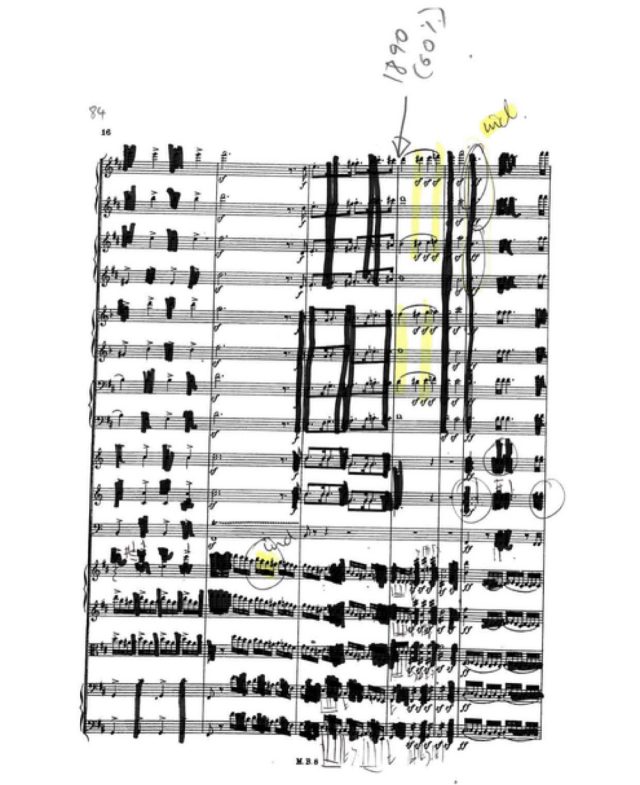
[ad_1]
Hebrides Overture’s disappearing notes spotlight the plight of humpback whales.
Felix Mendelssohn’s The Hebrides was impressed by the composer’s 1829 journey to the British Isles. His overture has now impressed collaboration between a Cambridge economist and a composer, utilizing sound to name consideration to the lack of biodiversity on Earth. Hebrides Redacted successively removes notes from the 10- to 11-minute overture in proportion to the decline in humpback whale populations over many many years. A brief movie in regards to the mission (embedded above) was launched right this moment as a part of the Cambridge Zero Climate Change Festival.
“Over the past century we have seen nearly a million species pushed to the brink of extinction—nature is going quiet,” mentioned Matthew Agarwala, an economist on the University of Cambridge. “Researchers—including me—have been sounding the alarm about the consequences of biodiversity loss for a long time, but the message isn’t landing. Music is visceral and emotional, and grabs people’s attention in ways that scientific papers just can’t.”
Mendelssohn visited England and Scotland on the invitation of the Philharmonic Society. It was throughout his tour of Fingal’s Cave on the Scottish island of Staffa that inspiration struck, and he shortly wrote down the opening theme that got here to him. The opening notes function violas, cellos, and bassoons to evoke the cave’s magnificence, whereas a secondary theme is supposed to convey the rolling waves of the ocean.
He completed the piece in June 1832 and carried out the primary efficiency in January 1833 in Berlin. It’s extensively thought-about certainly one of his best compositions, typically described as a tone poem. No much less a luminary than Johannes Brahms as soon as declared, “I’d gladly give all I’ve written to have composed one thing just like the Hebrides overture.”
Per Agarwala, there are about 30,000 notes in Mendelssohn’s unique rating, which roughly corresponds to the variety of humpback whales that populated the oceans in 1829. But a thriving whaling business decreased their numbers to the brink of extinction. By the Sixties, there have been solely round 5,000 humpback whales left, and the International Whaling Commission (IWC) banned business humpback whaling as a protecting measure.

Ewan Campbell
The species has since rebounded, with a 2018 worldwide inhabitants of round 135,000 whales, 13,000 of which name the North Atlantic dwelling. But they nonetheless face threats like getting entangled in fishing gear, colliding with vessels, and extreme ocean noise, in addition to the destruction of their coastal habitats and opposed impacts of local weather change.
That’s why Agarwala and composer Ewan Campbell selected to construct Hebrides Redacted across the plight of these creatures, figuring it was extremely probably that in his journey, Mendelssohn would have seen a humpback whale or two—or a whole lot. Campbell divided the rating into sections to characterize many years, and step by step eliminated notes in line with how the whale populations declined over these many years. Yet the piece ends optimistically, permitting for an 8 p.c rise each decade in whale populations sooner or later.
“At its nadir, the score is thin and fragmented, with isolated notes reaching for a tune that is only partially present,” said Campbell. “But even in the face of devastating destruction, nature is resilient and always beautiful, and so even when two-thirds of the music is absent there’s still a delicate beauty, though a pale imitation of its once dramatic glory. ‘Redaction’ is a word normally associated with censorship, and silencing history. I find it really apt for this piece of music. We’re showing how human activities have silenced nature.”
Hebrides Redacted acquired a standing ovation when it was carried out by a 38-piece orchestra on the August Wilderness Festival in Oxfordshire, England, with Campbell conducting and Agarwala narrating.
[ad_2]